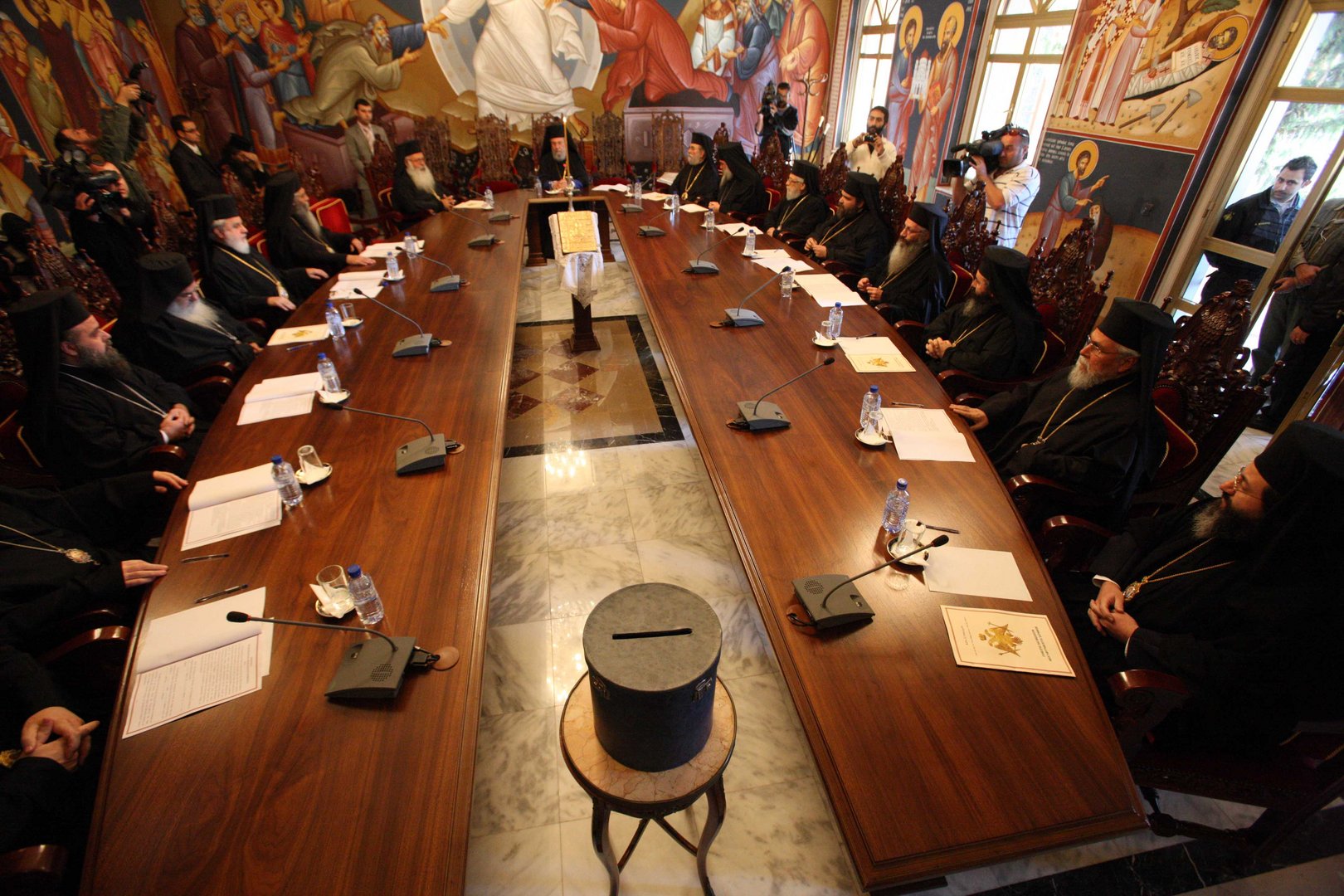Whoever is elected as archbishop is the church’s affair, but likewise it should not meddle with the state
It is known that the Archbishop Chrysostomos has reached the age of 81 and is suffering from a serious disease. The archbishop’s death (or resignation) will mark the beginning of the march to the archbishopric elections, which – unofficially and behind the scenes – has already begun.
The elections will be held on the basis of the new charter of the Church of Cyprus, as formulated in September 2020, on the recommendations of Archbishop Chrysostomos. The principal innovations of the new charter were (a) increasing the members of the Holy Synod to at least 15; (b) adopting a new procedure for filling the posts of the archbishop and the metropolitans; (c) creating a temporary (“virtual”) diocese of Kyrenia, “temporarily” based at Evrychou, a small village in the foothills of Troodos; (d) setting new rules as to how ecclesiastical offences should be tried; (e) regulating the spiritual dissolution of a marriage and (f) ratifying the clergy’s payroll scheme and the significant increase in the salary of all priests.
The procedure for the election of the archbishop
Returning to the issue of the election of the archbishop, I summarise below the relevant provisions of the charter of the Church of Cyprus (Articles 19-30):
- All metropolitans, bishops and unmarried clergy, over the age of 35, with 10 years of successful service and a degree from a recognised Orthodox theological school, are eligible to stand for election.
- Within 10 days of the vacating of the post, the chaplains are instructed to draw up or revise (within 15 days) the electoral rolls and the day is set for the election of the three candidates, who will form the three-person shortlist (within a period of 40 days).
- The compilation of the three-person shortlist is attained by a secret ballot of Orthodox Christians (not necessarily Cypriots) over 18, who permanently reside in Cyprus and are registered on the electoral rolls, which have been approved by the synod.
- The ballot is a blank piece of paper on which the elector writes by hand the name of the person who has the necessary qualifications and would like to see elected. The three who receive the greater number of votes, comprise the shortlist.
- The archbishop is elected by a secret ballot of the members of the synod, from among the three short-listed candidates.
The candidates likely to be shortlisted
The prevailing impression within ecclesiastical circles is that the names most likely to appear on the shortlist are those of Bishop Athanasios of Limassol, 63, Bishop Isaiah of Tamassos, 51, and Bishop Neophytos of Morphou, 60. Included amongst the contenders will probably be Bishop Georghios of Paphos, 73, who is supported by Archbishop Chrysostomos, and Bishop Vasilios of Constantia, 74, who is believed to have the support of the Ecumenical Patriarchate. The first three openly opposed the independence of the Ukrainian church, in support of the Moscow Patriarchate. On the Cyprus problem, with the exception of Vasilios, the remaining four candidates are advocates of “a long-term struggle” and are against any form of a compromise, but they remain silent on how to avoid the turkification of the occupied territories. Neophytos, in particular, has distinguished himself for his anti-vaccination views and for supporting Russia’s invasion of Ukraine. In contrast, Vasilios believes that a reconciliatory stand is more in line with the Christian faith. He is considered to be the most “European” candidate.
The role of the church
The Holy Synod clearly plays a decisive role in the selection of the archbishop, while the role of the “commoners” is limited, in line with the Byzantine tradition, to a symbolic participation in the electoral process. This is the choice of the Orthodox Autocephalous Christian Church of Cyprus, and it is perfectly respected. However, in a democratic society, where the executive and the legislative powers are periodically elected by the citizens of the country, no other organisation is entitled to claim a regulatory role in the governance of the country. Even more so, it is not entitled to seek to replace the elected state dignitaries on the strength of the superficial claim that the election of the ecclesiastical hierarchy is also carried out by the people.
An additional important argument in favour of distancing the church from the political problem of Cyprus is the glaring failure of the Cypriot church – despite its continuous efforts, particularly since the election of Archbishop Makarios – to lead Cyprus to a political settlement. Also well-known is the very negative contribution of the three bishops (Anthimos, Kyprianou and Gennadios), who paved the ground for the foolish coup of 1974 and for the Turkish invasion that followed suit.
Of course, both the archbishop and the other church dignitaries have the right to form and express an opinion on any issue that concerns society as a whole, as long as their involvement is done in a transparent manner without utilising the possibility they have to influence the faithful, given the relationship that persists between a religious leader and a lay member of the church.
More specifically, on the issues of the political future of Cyprus, corruption and transparency, I am of the opinion that the church should distance itself. In particular, it should avoid funding or otherwise supporting the candidacy of any person in the upcoming presidential elections. On the issue of transparency, the church should set a good example by making it mandatory to compile and publish annual audited financial statements, in accordance with the international accounting standards. As the English say: “charity starts at home”.
Christos Panayiotides is a regular columnist for the Sunday Mail and Alithia







Click here to change your cookie preferences